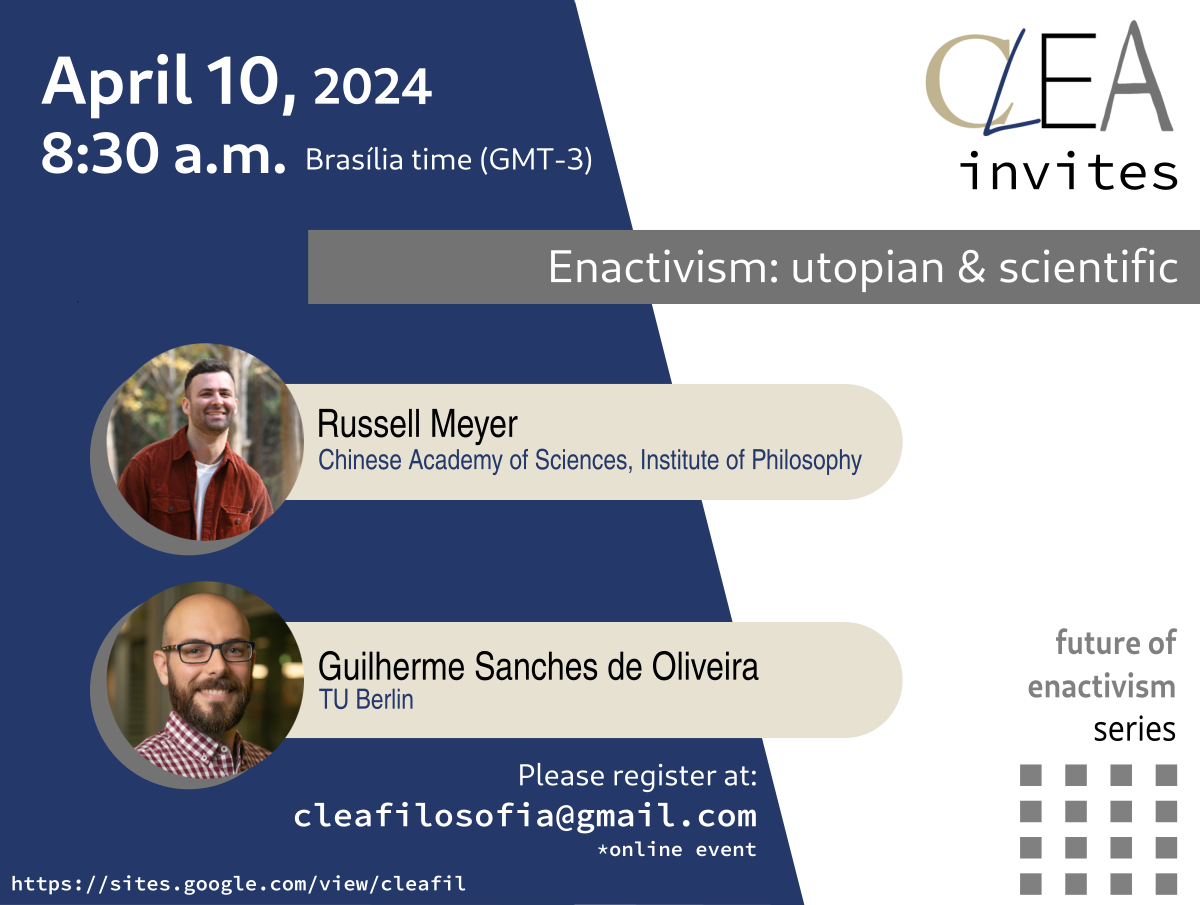Primeiro evento da série “O futuro do enativismo” em que pesquisadores do mundo inteiro debatem questões e problemas centrais do programa de pesquisa enativista. O evento ocorreu em 10 de Abril e contou com a presença de Russel Meyer (Instituto de Filosofia da Academia Chinesa de Ciências) e Gui Sanches de Oliveira (TU Berlin) debatendo a distinção entre enativismo utópico e científico.
Série
Futuro do Enativismo
Palestrante
Russell Meyer (Instituto de Filosofia da Academia Chinesa de Ciências)
Comentador
Guilherme Sanches de Oliveira (TU Berlin)
Artigo
Enactivism: Utopian & Scientific
Resumo
Context: Our target article concerns the direction and growth of enactivism, a framework portrayed as a revolutionary shift in understanding cognition. While enactivism continues to be a lively position, it is unclear how its contributions relate to the cognitive sciences. Despite some empirical successes, enactivism remains somewhat insulated as a theoretical position and as a research program. Problem: There exists a discrepancy between enactivist aims and delivery. The basis of this problem, we argue, is that the overall objective of enactive theorising is not clear, which has led to diverging strategies for implementation and integration with the cognitive sciences. Method: We review contributions from different strains of enactivism - autopoietic, sensorimotor and radical - and their research goals, both tacit and explicit. We show that enactivism is productively understood as two projects we term utopian enactivism and scientific enactivism. Utopian enactivism aims to develop a philosophically defensible lens through which cognitive science is to be viewed. Scientific enactivism intervenes in scientific practice by contributing to the implementation of enactive ideas. Results: Once disentangled, the utopian and scientific projects have important but independent tasks. Utopian enactivism is useful for building a coherent and defensible enactive philosophy of nature, while scientific enactivism is free to draw upon and contribute to non-enactive approaches in the cognitive sciences. Implications: We aim to motivate discussions that will enhance enactivism’s progress, and our reappraisal also offers a clear and explicit roadmap for renewing advances in enactivist philosophy and cognitive science. Constructivist content: We directly engage with the work of Humberto Maturana and Francisco Varela to advance their project.
DOI
https://constructivist.info/19/1/001.meyer
